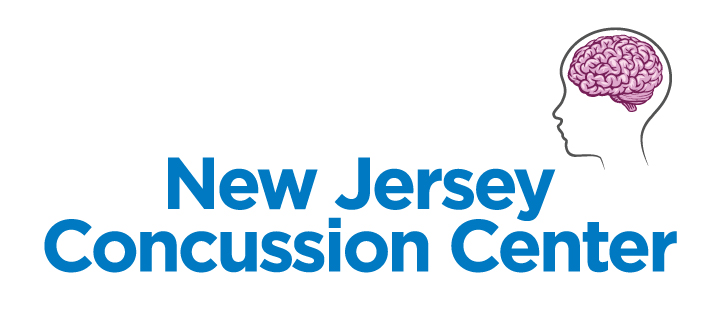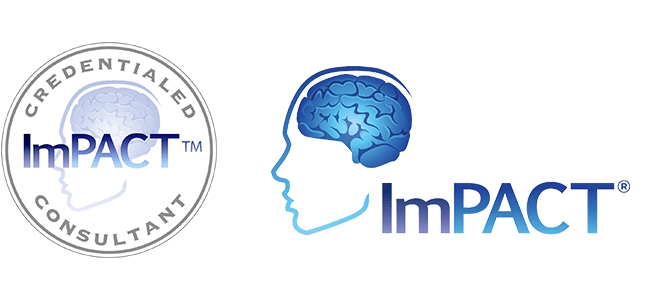

“defined as a complex pathophysiological process affecting the brain, induced by traumatic biomechanical forces.” (Cantu et al., 2005)
Did you know that a child can sustain a concussion tackle or fall to the ground even if they did not hit their head? Yes, this is true but most pediatric head injuries that can occur from a direct blow to the head, face or body are mild and result in complete recovery. The term “concussion” refers to a mild traumatic brain injury. A concussion can interfere with the way the brain works for a short period of time.
Symptoms of a concussion may include:
- Headache or a feeling of pressure in the head.
- Neck pain or stiffness.
- Nausea or vomiting.
- Balance problems or dizziness.
- Double or blurry vision.
- Sensitivity to light or noise.
- Feeling fatigued, sluggish, groggy, or dazed.
- Trouble paying attention or focusing.
- Memory problems.
- Confusion and slowness.
- Sleeping issues.
- Mood changes, like depression and/ or irritability.
- Changes in behavior or personality.
If there's any suspicion of a concussion during a sporting event… it's best not to return to play until symptoms improve. “If in doubt, sit it out." Children can have a concussion without losing consciousness. Remember, even a blow to the body can result in a concussion. Children with a concussion need to rest from both physical and mental activities. Most head injuries take time to heal. After They can return to activities gradually as their symptoms allow. As symptoms improve, children gradually return to their activity levels before the concussion.
In rare cases, what is at first thought to be a concussion turns out to be a more severe brain injury with bleeding in or around the brain. Such bleeding can increase pressure on the brain and can be life-threatening. If your child develops any of the following symptoms after a head injury, seek medical care right away.
- Behavior changes such as agitation, confusion or restlessness.
- Seizures.
- Not being able to recognize people or places.
- Loss of consciousness.
- One pupil that is larger than the other.
- Slurred speech.
- Unusual behavior.
- Being very drowsy or not being able to be woken from sleep.
- Vomiting.
- Crying that won't stop.
Most children with a concussion have cognitive effects. Using the IMPACT test, we assess cortical dysfunction and cognitive impairment right after a concussion, and then repeat the cognitive testing in 1-2 weeks, to be certain that we are seeing improvement.
When returning to school after a concussion, your child may require classroom or workload adjustments. This may include a lighter course load, additional time for assignments or a shortened school day. When returning to physical activity after a concussion, your child needs to start exercising at low levels. Then your child can advance to more strenuous physical activity as symptoms allow. Don't allow your child to return to play until cleared by a health care professional. If participating in sports, follow a "return to play" plan guided by your child's symptoms. Formal return-to-sport plans are recommended.
Children might develop complications or delay healing if they have another injury before a concussion has healed. Another blow to the head while a concussion is healing can result in longer lasting or worse symptoms.
Researchers continue to study other potential long-term effects of concussions. Having one concussion puts children at higher risk of having another. The effects of repeat concussions over years can multiply.
Persistent post-concussive symptoms last longer than the usual recovery period. This is also known as post-concussion syndrome. It's not clear why some people develop this syndrome and others don't, though some risk factors have been identified. Some research suggests that having repeat concussions might increase the risk of persistent post-concussive symptoms.
To protect your child from head injuries, insist on appropriate and properly fitted protective equipment. This includes wearing a helmet during sports and other activities. However, even the best protective equipment can't prevent all concussions.
If you think your child has a concussion, seek medical care. A health care professional can determine the seriousness of the injury. The health professional also can determine when it's safe for your child to return to sports, school or other activities.

Our program utilizes the Immediate Post-Concussion Assessment and Cognitive Testing (ImPACT), which measures cognitive abilities, such as attention, memory, reasoning, language, and perception to accurately detect a concussion. The ImPACT is a 20-minute computerized test available for measuring baseline functioning, as well as post-injury functioning, and allows doctors to measure and track the effects of a concussion. The ImPACT is also utilized to determine when an athlete will be ready to return to play.
If indicated, we do offer complete neurocognitive evaluations and neuropsychological assessment with a pediatric neuropsychologist. Neuropsychologists are doctors who specialize in caring for children with brain injury, whether from a traumatic brain injury (TBI), concussion, brain tumor, or other brain injury.
What you need to know about concussions, simplified.
Read more about concussions and the ImPACT test here.

NOTICE: This website is for informational purposes only and is not intended as medical advice or as a substitute for a patient/physician relationship.
NJPNI is committed to creating a culturally diverse, inclusive and collaborative community for patients and their families, employees and associates where each person is celebrated and has a sense of equal belonging. See our DEI Statement Page for more information.
NJPNI does not exclude, deny benefits to, or otherwise discriminate against any person on the grounds of race, color, or national origin, or on the basis of disability or age in admission to, participation in, or receipt of the services and benefits of any of its programs and activities or in employment therein. This statement is in accordance with the provisions of Title VI of the Civil Rights Act of 1964, Section 504 of the Rehabilitation Act of 1973, the Age Discrimination Act of 1975, and Regulations of the U.S. Department of Health and Human Services issued pursuant to the Acts, Title 45 Code of Federal Regulations part 80, 84, and 91.